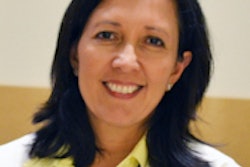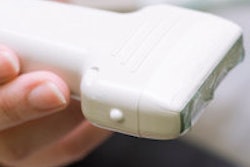Dear AuntMinnie Member,
Two Canadian medical societies this week tackled an uncomfortable subject: the use of ultrasound to determine the gender of fetuses, a practice that's believed to lead to sex-selective abortions.
Widely seen as a problem in developing countries such as China and India, sex-selective abortion is believed to be a product of cultural norms (and in China's case, population controls) that fuel a preference for boys. But the issue is beginning to pop up in developed countries as well, most likely those that have large immigrant populations.
One of those countries is Canada, where news reports have hinted at a link between keepsake ultrasound centers and sex-selective abortion in immigrant communities. This week, the Canadian Association of Radiologists and the Society of Obstetricians and Gynaecologists of Canada issued a statement warning against "entertainment" ultrasound at nonmedical clinics, particularly for the purposes of gender determination.
Could the statement lead to stronger regulatory action against keepsake ultrasound centers? And will the U.S. follow suit? Read the article in our Ultrasound Digital Community by clicking here.
While you're there, check out an article that explores the question of why ultrasound is so effective in finding cancers that conventional mammography misses. These stories and more are available in our Ultrasound Digital Community at ultrasound.auntminnie.com.
Residents take to iPads
In other news, radiology residents given iPads as part of their training appear to have taken to the tablet computers. That's according to a new story we're featuring in our Residents Digital Community.
Researchers from Beth Israel Deaconess Medical Center found that shortly after residents were given iPads as part of their training in the program, 86% were using them on a daily or weekly basis. Most of the residents reported using the tablets for reading journal articles and other reference purposes.
However, for some tasks, residents still preferred traditional tools such as old-fashioned paper. Learn more by clicking here, or visit our Residents Digital Community at residents.auntminnie.com.



















